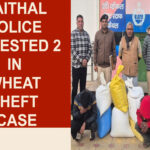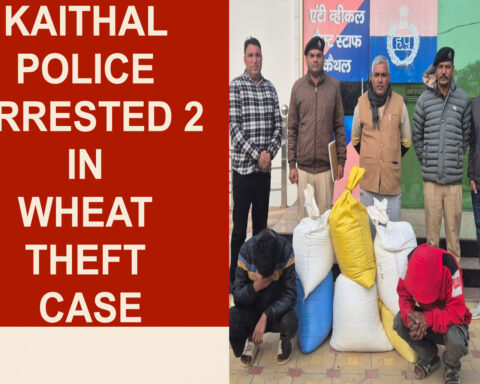Massive Awareness Drive Launched to Prevent Crop Burning
In a bold and proactive move, the Kaithal Agriculture Department recently conducted an extensive awareness campaign to prevent stubble burning and promote sustainable farming practices. Held in Guhla-Cheeka and surrounding villages, the initiative focused on educating students and farmers alike about the harmful effects of burning crop residues.
The department emphasized that while burning seems like an easy way to clear fields, it actually depletes the soil and pollutes the environment.
School Rally Spreads the Green Message
Students Take the Lead in Gohera Village
The awareness rally was organized at the Government Senior Secondary School, Gohera. Under the guidance of Agriculture Development Officer Dr. Ishwar Kumar and Principal Hardayal Arora, students carried banners with slogans like:
- “We will not burn stubble.”
- “We will increase soil fertility.”
As they marched through the village, they raised awareness among locals about the need for proper residue management.
Principal Hardayal Arora addressed the villagers, stressing that managing crop waste correctly protects the environment and enhances soil quality. He also used the occasion to encourage parents to enroll their children in government schools, highlighting the improved infrastructure and quality teaching now available.
Expert Insights on Sustainable Farming
Farming Without Fire
Dr. Ishwar Kumar spoke directly to farmers, urging them to mix leftover wheat residue into the soil rather than burning it. This method, he said, naturally increases the soil’s fertility and supports healthy crop growth.
Farmer Camps Held Across the Subdivision
Multiple Villages Covered Under the Campaign
In addition to the rally, farmer awareness camps were organized in villages including:
- Paprala
- Bhuna
- Peedal
- Daba
- Harigarh Kingan
- Bhagal
These camps were conducted under the leadership of Sub-Divisional Agriculture Officer Dr. Kanchan Sharma, District Agriculture Officer Dr. Babu Lal, and Block Agriculture Officer Dr. Ami Lal.
Field-level supervisors like Deepak, Anuj, Karmbir, Gagandeep, Harpreet, Jagsir, and ATM Ashok Kumar also took part, engaging farmers in interactive learning sessions.
Environmental and Legal Warnings Shared
Farmers Informed of Penalties
At the camps, officials explained how burning crop residues destroys helpful soil microbes and insects, reduces soil productivity, and even causes roadside accidents due to smoke.
They made farmers aware of nutrient loss, including essential elements like urea and DAP, when crop waste is set on fire.
Penalties for Burning Residue
As per the Bharatiya Nyay Sanhita 2023 and Air Pollution Control Act 1981, burning residues can lead to:
- ₹5,000 fine for land under 2 acres
- ₹10,000 for 2–5 acres
- ₹30,000 for 5 acres or more
- FIRs may also be registered
In addition, if a farmer is caught, their entry on the ‘Meri Fasal Mera Byora’ portal will be marked in red. This would bar them from selling crops on MSP for two seasons.
Promoting Water Conservation
Part of the Jal Shakti Campaign
Alongside crop management education, the Jal Shakti Abhiyan was promoted to encourage water-saving techniques in irrigation. Farmers learned how to:
- Use drip irrigation
- Adopt micro-sprinklers
- Avoid overwatering
This effort aims to conserve water resources for future generations while improving crop yield.
Looking Ahead: Sustaining the Campaign
A Holistic Approach to Farming
This dual focus—on soil health and water conservation—reflects a modern, environmentally conscious approach to agriculture. The campaign demonstrated that when education meets action, farmers can adopt better practices for their own benefit and for the planet.
Community Response and Future Plans
Building Long-Term Awareness
The participation of students, teachers, agricultural experts, and villagers highlights the community’s readiness to embrace change. As farmers become more aware, crop burning may soon decline, leading to better air quality, healthier soil, and sustainable income sources.
Officials indicated that more such programs will be organized regularly to keep momentum alive and track farmer adoption of these methods.
Conclusion: Towards a Cleaner and Greener Future
The Agriculture Department’s efforts mark a significant step toward cleaner air, healthier soil, and more sustainable farming. Through rallies, school engagement, and direct farmer education, the campaign is changing behaviors and saving resources.
By replacing fire with knowledge, Kaithal’s agricultural community is leading the way in eco-friendly farming practices that can serve as a model for the rest of the state.


















